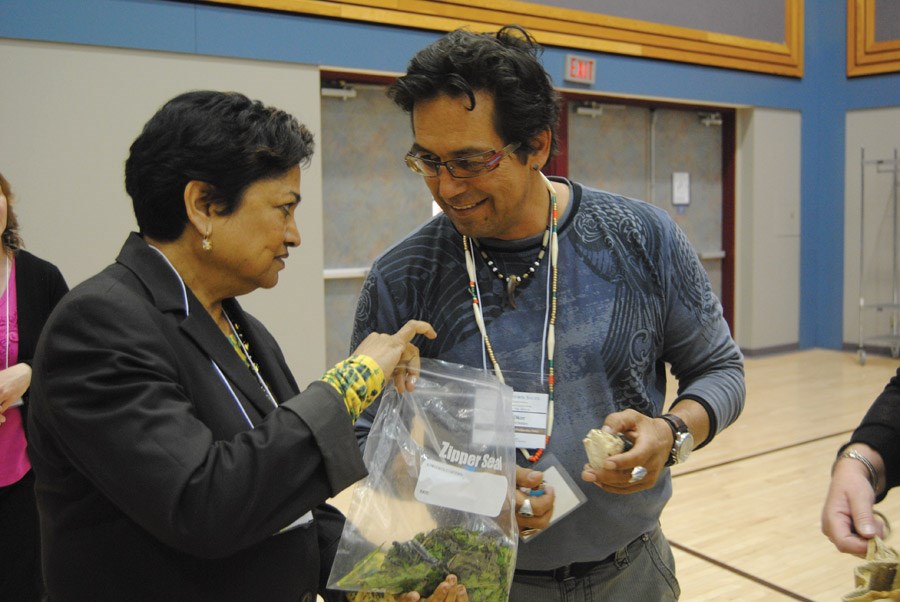Deal with the land's title-holders as the first step in the partnership process, or risk your industrial project never happening.
It should have been the old way of doing business, but it certainly is the new way of doing business on the northern B.C. landscape, said former Doig River First Nation chief Gary Oker, a consultant on the issues of industrial and economic development.
Oker was one of the featured speakers at this week's Resources North Association conference, an event focused on better understanding land-use plans, and collaboration between government, companies and individuals that use the land. The theme of the conference was Breaking Down Silos.
"The companies and other levels of government want to take all the money for themselves," said Oker. "That is the frustrating thing for First Nations. This collaboration talk doesn't mean a thing unless you stand up and do something about it. Get out of your silo or you'll see an uprising of people, and it's not going to be nice this time.
"Because we [aboriginal people] don't have any place else to go."
Court victories and provisions within the Charter of Rights and Freedoms have put First Nations title rights back in their proper place, he said, so dealings have to be more fair going forward than what governments and companies got away with in the past.
Resource industry companies are quickly coming to that conclusion, he said, and were now knocking on First Nations doors earnestly to discuss their mining and pipeline and petroleum drilling and forestry ideas.
"[But] where is the government?" he said. "The duty to consult is being downloaded to industry. That's the government's job. Government to government. Decisions are being made, or so they think, by people who have never even come to meet us, people we don't know.
"How disrespectful. And they call themselves 'regulatory bodies' but they approve everything, even if we oppose them. What kind of regulatory body is that?"
Oker stressed that resource development was on the table, for most First Nations.
Aboriginal nations were keen to log and mine and use the land for the prosperity of the people - including broader society - but on terms they had to mutually agree on. To illustrate the issue at the foundation of aboriginal argument, he called all those in the audience into a circle. He opened a large bin and started handing out bags full of items: tree lichen, blueberry roots, sprigs of evergreen, etc.
He then explained all the ways each item was a valued product to those who knew how to use it.
To aboriginal people, he said, these were key commodities. If other key commodities - wood, copper, natural gas - could be extracted from an area and not ruin the sustainability of these organic ones, that was the basis for a deal.
He cautioned aboriginal people to acknowledge the benefits mainstream society could provide if a respectful partnership model was committed to by governments and companies.
"We have to think like a corporation," Oker said. "If we put our collective minds together, with modern technology and science and artistry, we can achieve amazing things."



